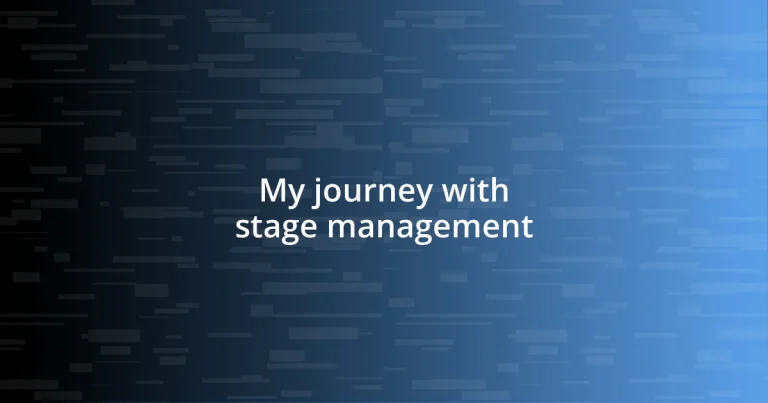Key takeaways:
- First rehearsal ignited a passion for stage management, emphasizing its role in coordinating productions.
- Building trust within the team through open communication and delegation is essential for effectively navigating challenges.
- Effective communication fosters collaboration and creativity, enhancing the overall success of a production.
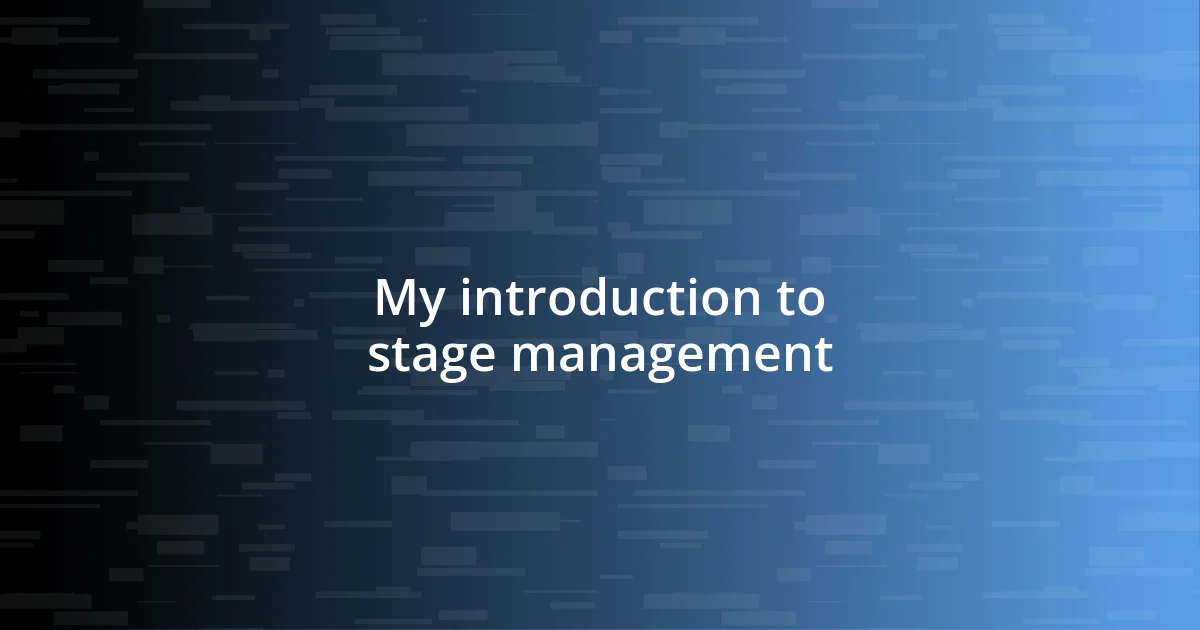
My introduction to stage management
I still vividly remember the moment I stepped into my first rehearsal as an eager volunteer stage manager. The chaos of the theater embraced me—actors shouting their lines, lights flickering, and props scattered around. It felt overwhelming yet exhilarating, like being thrown into a whirlwind of creativity where every detail mattered.
That first day not only sparked my interest but also ignited a passion I never knew I had. I found myself asking: how does everything come together so seamlessly in a live show? As I delved deeper, I realized that stage management is the glue that holds the entire production together, coordinating everything from cues to communication with the crew.
Over time, each challenge—from solving last-minute issues to ensuring the actors were in the right place at the right time—became a puzzle I loved piecing together. I learned to thrive under pressure, and each successful performance felt like a personal victory, deepening my appreciation for the collaborative effort of everyone involved.
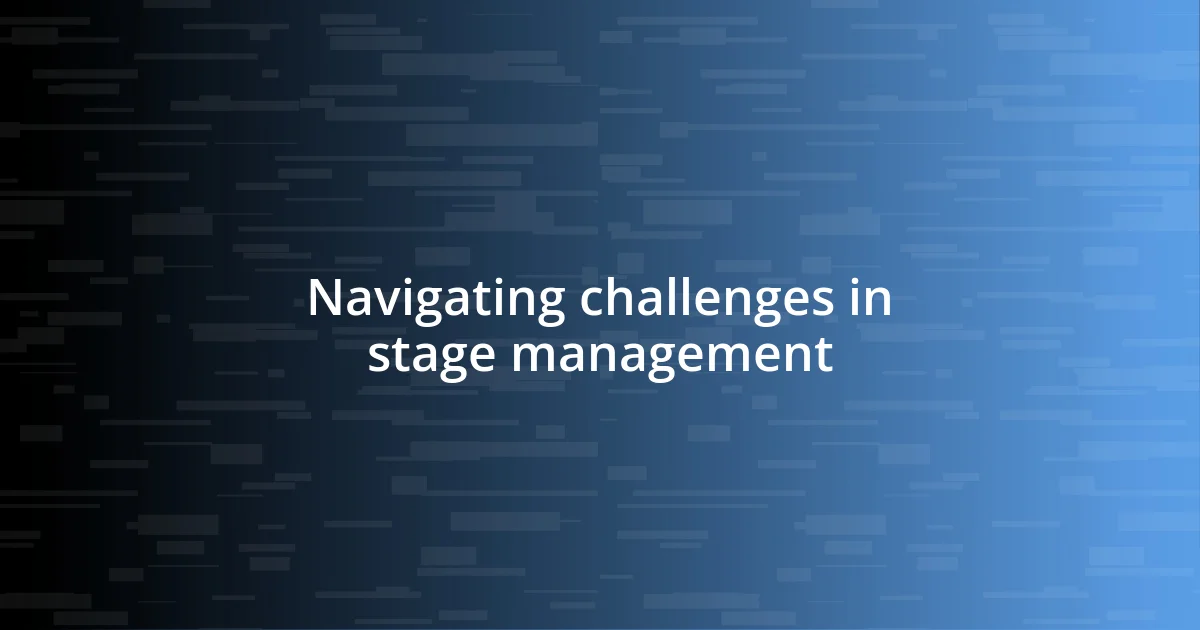
Navigating challenges in stage management
Navigating challenges in stage management often feels like riding a rollercoaster—thrilling yet scary. There was a night when an actor forgot a crucial line, and the atmosphere shifted in an instant. I had to guide the team smoothly through the chaos. My heart raced, but I felt a surge of determination. I quickly communicated with the prompt team, adjusting cues to get us back on track. That experience taught me the value of calmness and quick thinking in a crisis.
One of the recurring challenges I face is balancing multiple priorities. Imagine juggling sound checks, lighting adjustments, and making sure the makeup team gets the right look—all simultaneously! In one instance, during a particularly complex show, I found myself torn between troubleshooting a lighting issue and assisting an actor who had forgotten their props. I paused, took a deep breath, and delegated tasks. This taught me that trusting my team isn’t just beneficial; it’s essential.
The unpredictability of live theater can be daunting, yet I’ve come to appreciate it. I remember when a last-minute storm threatened to delay a performance, and we had to make quick decisions about the audience’s safety. It felt like we were collectively holding our breaths as we managed the situation. That shared responsibility fostered a deeper connection among the cast and crew, reminding me that navigating challenges in stage management is not just about logistics—it’s about building trust and camaraderie.
| Challenge | Solution |
|---|---|
| Actor forgetting a line | Quick communication and cue adjustments |
| Balancing multiple priorities | Delegating tasks and trusting the team |
| Unexpected delays due to weather | Collective decision-making for safety |
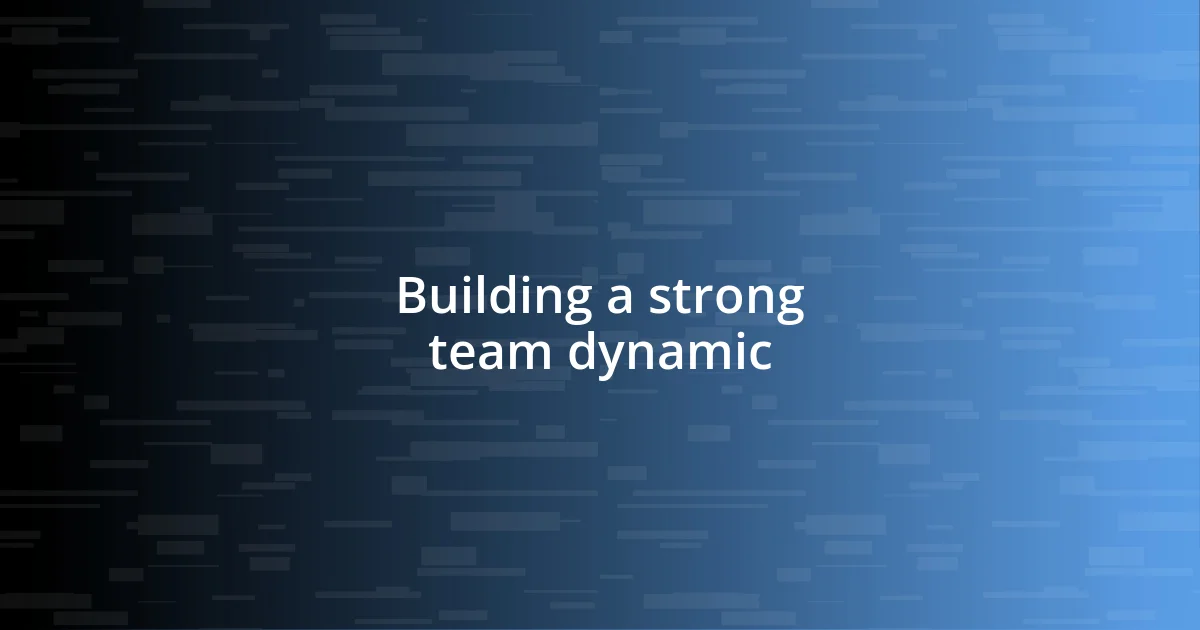
Building a strong team dynamic
Building a strong team dynamic is crucial in stage management, as it directly affects the success of a production. I’ve discovered that creating a positive environment starts with open communication. One memorable moment for me was when I organized a team lunch after a tough week of rehearsals. I encouraged everyone to share their thoughts, and I was amazed at how much this simple act broke down barriers. We laughed, bonded, and shared ideas casually, which made us more aligned in our approach during crunch time.
To foster this dynamic, I suggest focusing on these key elements:
- Open Communication: Encourage team members to speak up and share ideas without judgment.
- Team-Building Activities: Regularly organize casual meet-ups or workshops to strengthen relationships.
- Recognition and Encouragement: Celebrate small wins and acknowledge individual contributions to boost morale.
It’s fascinating how these small efforts can transform a group of individuals into a cohesive, motivated team ready to tackle any challenge together.
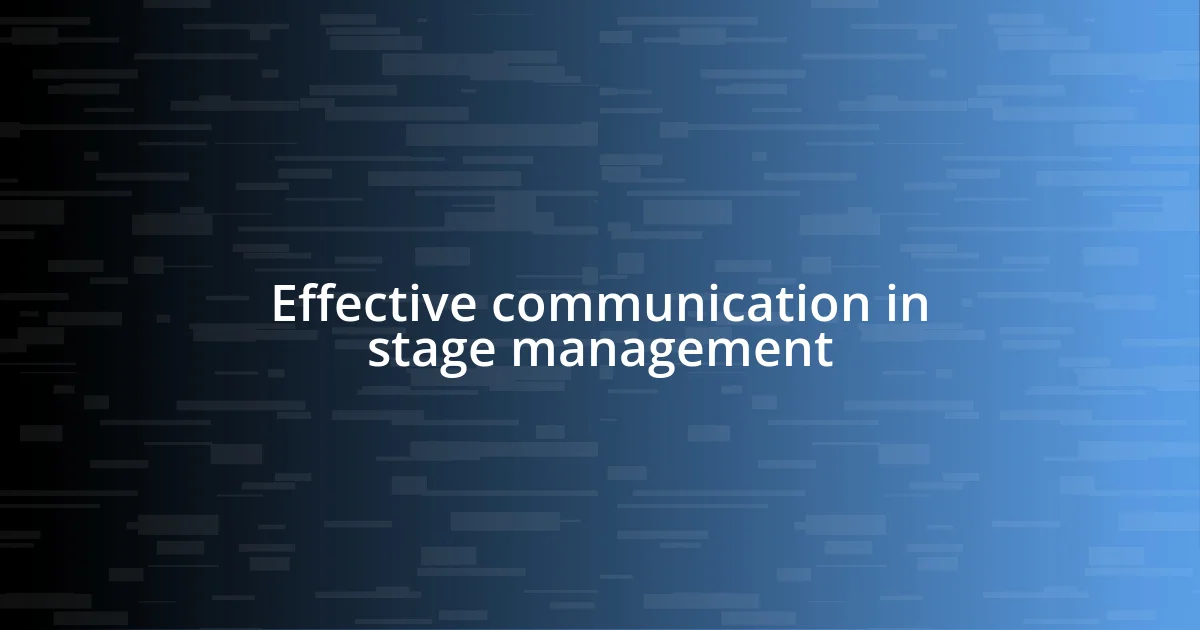
Effective communication in stage management
Effective communication in stage management is the backbone of a successful production. I vividly remember a time during a dress rehearsal when the stage manager was relaying cue changes over the intercom. There was a moment of confusion as names and cues got jumbled, and tensions ran high. In that instant, I realized that clarity was crucial. Asking clear, specific questions not only alleviated anxiety but also ensured everyone was on the same page. Isn’t it interesting how just one phrase can either create chaos or establish calm?
Being direct yet friendly has always been my approach. I recall a time when I had to address an issue with the lighting designer’s choices without discouraging their creativity. I made it a point to highlight what was working well before suggesting tweaks to fit the vision of the production. This method of feedback transformed our communication from potentially confrontational to collaborative. It’s amazing how a little kindness can transform a professional exchange into a constructive dialogue.
Ultimately, effective communication extends beyond words; it involves listening and responding thoughtfully. Early in my journey, I realized the profound impact of inviting everyone to voice their opinions during meetings. By cultivating an atmosphere where each crew member felt valued, it made everyone more invested in the project’s success. Have you ever noticed how a simple “What do you think?” can open the floodgates of creativity? I’ve come to see that engaging and valuing every perspective drives us toward a more successful production, fostering not just teamwork but an authentic sense of community.












